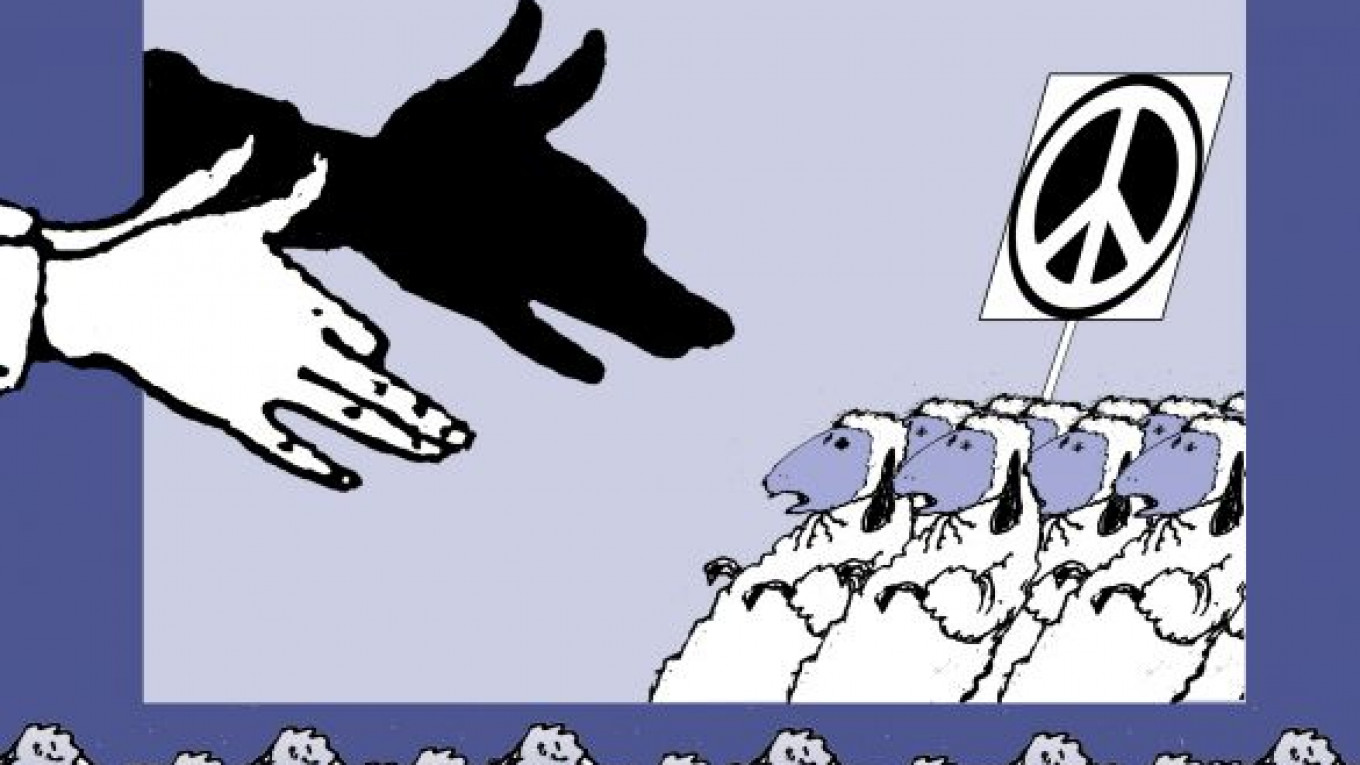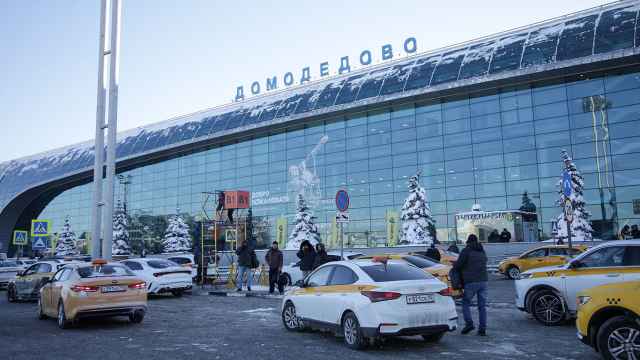In the fifth century B.C., Chinese philosopher Shan Yan developed a new form of propaganda based on the following notion: When a powerful nation goes to war, it unifies the people and makes the state even stronger. When a strong country is at peace, the people become relaxed, and it loses its edge.
More than 2,000 years later, U.S. political scientist Samuel Huntington wrote in his 2004 book, “Who We Are: The Challenges to America’s National Identity,” that as long as Americans believe their country is at risk, national identity is strong. But once this sense of danger dulls, so does the identity.
Modern politicians are often tempted to strengthen the state and personal power by exploiting and manipulating the existence of external threats. This applies to democracies as well as autocracies. In the United States, for example, some Republicans have accused U.S. President Barack Obama of selling out the country’s national interests for the sake of resetting relations with Russia.
For military-industrial complexes, the more enemies, the better. During the Cold War, it was easy for the United States to find an enemy in the Soviet Union. Now, U.S. hawks look for enemies among so-called rogue states like North Korea and Iran. When the U.S. military-industrial complex is in full force, it, along with its allies in the White House and Pentagon, tries to provoke conflicts and then sells weapons to solve these conflicts by force.
Hegemonic ambitions are a natural outgrowth of Shan Yan’s theory. For example, the Chinese have from time immemorial perceived their country as an empire that has a “mandate from heaven” to control earthly affairs.
Ancient Rome also believed it had the right to rule the world. During the seventh century, Arabs, united under the banner of Islam, believed that the wars they started were sanctioned by Allah and would benefit mankind. The French, after creating a strong centralized government, decided that they were the nation chosen by God and fate to spread civilization around the world.
In the same spirit, Britain, Holland, Spain and Portugal justified their colonization of Africa and the Americas. Until its defeat in World War II, Japan spoke about its duty to free the people of Asia from the “white barbarians” and to give them a better set of morals and culture. Sixty years after the Italians created a unified government in 1870, fascist leader Benito Mussolini took control of the country and proclaimed a new Roman Empire, acquiring new territories in Europe and Africa. Tsarist Russia also sought expansion under the banner of Slavophiles and Orthodoxy, and after the Bolsheviks removed the tsarist regime from power, they led a global campaign to spread proletarian revolution.
After the Soviet collapse, it was the Americans’ turn to practice a modern version of Manifest Destiny — if not on a global scale, then at least in the greater Middle East. But Washington’s failures in Afghanistan and Iraq as well as the financial crisis cooled its appetite to spread Pax Americana to other countries. But is this respite in U.S. expansionism only a temporary phenomenon?
Another question is whether China will pursue expansionism. For the past decade, Beijing has insisted that it has too many internal problems to even think about territorial expansion. But this has done little to calm global nerves, particularly considering the fact that China’s economic and military power seems to be growing by the day.
Access to energy supplies and pipeline routes will continue to play an important role in global affairs in the 21st century and will continue to shape the foreign policies of the world’s leading energy producers and consumers: Russia, the United States and China.
In addition, the global economic crisis has turned many people in the West into pessimists and has sparked an interest in re-evaulating Marxism as a serious economic model for the post-crisis 21st century.
In the end, China can become a true global “game-changer.” If it continues to increase its military power while, at the same time, remaining socialist and authoritarian, dozens of other governments will surely try to adopt the Chinese formula in at attempt to achieve the same economic and political results.
Yevgeny Bazhanov is vice chancellor of research and international relations at the Foreign Ministry’s Diplomatic Academy in Moscow.
A Message from The Moscow Times:
Dear readers,
We are facing unprecedented challenges. Russia's Prosecutor General's Office has designated The Moscow Times as an "undesirable" organization, criminalizing our work and putting our staff at risk of prosecution. This follows our earlier unjust labeling as a "foreign agent."
These actions are direct attempts to silence independent journalism in Russia. The authorities claim our work "discredits the decisions of the Russian leadership." We see things differently: we strive to provide accurate, unbiased reporting on Russia.
We, the journalists of The Moscow Times, refuse to be silenced. But to continue our work, we need your help.
Your support, no matter how small, makes a world of difference. If you can, please support us monthly starting from just $2. It's quick to set up, and every contribution makes a significant impact.
By supporting The Moscow Times, you're defending open, independent journalism in the face of repression. Thank you for standing with us.
Remind me later.






